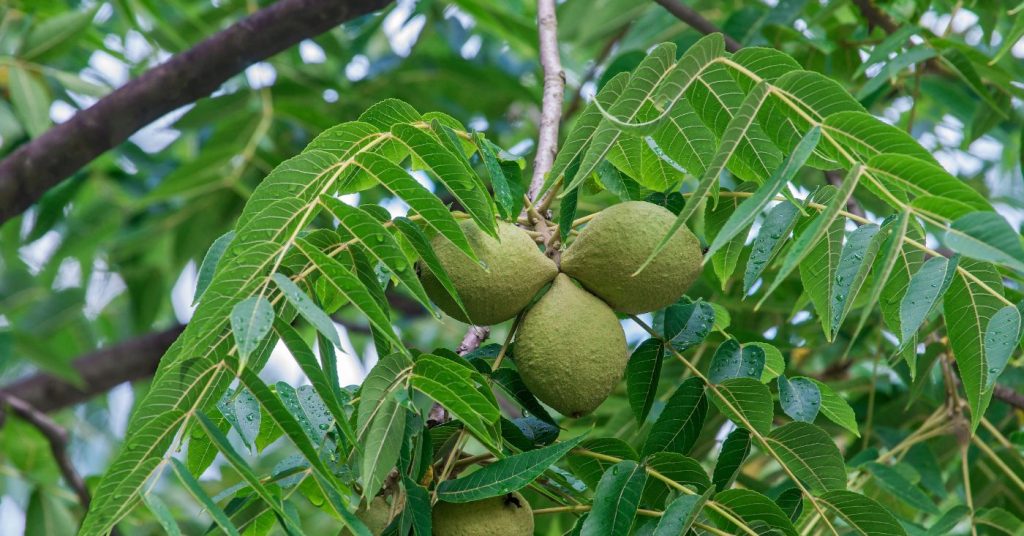Black Walnut Trees & Juglone: What is it & Why is it Important?

What is Juglone?
Black walnut trees, which are native to Wisconsin, are prized for their attractive dark wood. They are some of the most popular and hardy trees our state has. Landscaping around a black walnut tree can be tricky, because they’re known to produce a substance called juglone, which is toxic to many plants. The toxic area around a fully mature black walnut tree can extend up to 50 feet past the trunk. Luckily, several plants are tolerant to juglone and can be planted near black walnut trees, which can be found at our garden center and are listed below.
How to Identify Black Walnut Trees
Identifying a black walnut tree (Juglans nigra) involves observing several characteristics:
Leaves: Black walnut leaves are compound, meaning they are made up of multiple leaflets. A single leaf can have 15-23 leaflets, each 2-5 inches long. The leaves are alternately arranged on the branch and have a slightly toothed margin.
Bark: The bark of mature black walnut trees is dark brown to gray-black and deeply furrowed, forming thick, rough, and ridged patterns.
Nuts: The tree produces round, green fruits that encase a hard, brown-black walnut shell. The nuts are typically 2-2.5 inches in diameter. Inside the hard shell is the edible walnut.
Flowers: Black walnut trees have male and female flowers on the same tree. Male flowers are slender catkins, whereas female flowers are short spikes.
Size and Shape: These trees can grow up to 100 feet tall. They have a straight trunk and a broadly rounded crown when grown in the open.
Seasonal Changes: In autumn, the leaves turn yellow, and the nuts fall to the ground, often still encased in their thick, green husks.

What Plants Are Resistant to Juglone Toxicity?
It’s important to note that the tolerance levels can vary among different cultivars of these plants, and other environmental factors can also play a role in their survival. Additionally, it’s advisable to keep an eye on these plants for any signs of distress, as juglone sensitivity can sometimes be unpredictable.
Fruits & Vegetables
Beans
Black raspberry
Carrots
Melons
Onions
Squash
Perennials
Astilbe
Bee Balm (Monarda)
Coneflower (Echinacea)
Coral Bells (Heuchera)
Daylily
Hosta
Iris
Lavender
Phlox
Spiderwort
Shrubs
Azalea (Rhododendron)
Barberry
Boxwood
Forsythia
Hydrangea
Juniper
Spirea
Viburnum
Witch Hazel
Yew
Trees
Eastern Red Cedar
Japanese Maple & Sugar Maple
River Birch
Serviceberry (Amelanchier)
Northern Catalpa
American Hornbeam
Ginkgo
Elm
Magnolia
While these plants have shown a resistance to the effects of juglone, it’s always wise to monitor the health of everything you plant, as individual responses can vary based on specific environmental conditions. Soil type, moisture, and light can also affect their growth and health.
If you’re looking for plants that fit certain growing conditions near a black walnut tree, contact us with any questions or for recommendations. Or stop into our Oshkosh or Oregon garden center and we would be happy to help you out!
